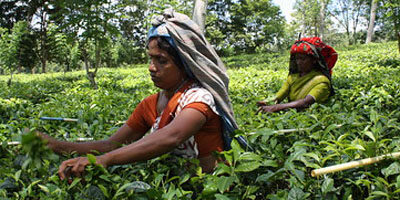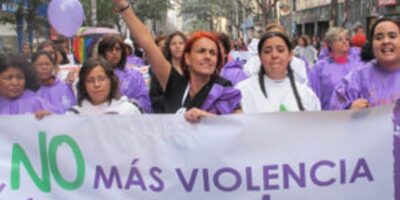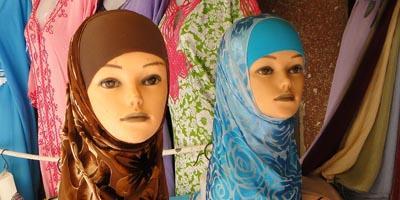In an effort to ensure that Canada’s foreign aid will be well spent, the Official Development Assistance (ODA) Accountability Act was introduced to Parliament in May 2006. In 2008 it passed the third reading and became law, but John MacKay, the Liberal MP who introduced the bill, is not convinced it is being implemented effectively.
“The government has made it clear that it is going to pay lip service to this bill. This puts the government in confrontation with the unanimous will of parliament,” he said.
The Act lays out three criteria for ODA: that it contribute to poverty reduction, take into account the perspectives of the poor, and be consistent with Canada’s human rights obligations.
10% of ODA goes directly to the World Bank, and there are questions about whether this funding meets the human rights obligations of the new law. The World Bank has no formal human rights standards, and has been criticized for not taking potential rights abuse into account in project planning.
These offenses include:
– a state-led massacre of indigenous residents in rural Guatemala who refused to abandon their land to allow for the construction of a World-Bank funded dam in 1978;
– the funding of a pipeline project in Chad and Cameroon in 1997 and 1998 where governments routinely violated human rights; and most recently, and
– the funding of Glamis Gold’s Marlin Mine in Guatemala in 2002, which local groups say harmed the community through lack of consultation, sparking conflict and violence.
The World Bank says it informally supports human rights, but that rights are political issues beyond its economic mandate.
To ensure its projects comply with the Bank’s standards, the Bank created an Inspection Panel in 1994 to provide a forum for people who believe they will be or are currently being aversely affected by a Bank project. Some people have used it to address human rights issues but it has been critiqued by NGOs for lacking authority, as it can only make recommendations to Bank management.
There have been cases in the past where an Inspection Panel recommendation has resulted in the cancellation of a project. This occurred at the Arun III Hydroelectric Project in Nepal in 1994 over concerns of environmental degradation and resettlement of local residents.
Nonetheless, the Panel lacks the authority to conduct human right impact assessments prior to the start of projects, which could prevent rights from being violated in the first place. The Panel also lacks the authority to ensure follow-up to the recommendations.
“Ultimately the Panel doesn’t have any teeth,” said Fraser Reilly-King of the Halifax Initiative, a coalition of Canadian NGOs. “They can make recommendations to the president but usually the Bank management argues against the recommendations.”
He doesn’t think it would be appropriate for the Bank to act as an arbiter of human rights. “The World Bank should not violate human rights standards where its funding is active,” he said, “The Bank should help countries respect, protect and fulfill their obligations, but it’s up to the state to ensure that rights aren’t violated.”
Government officials believe the World Bank does in fact uphold human rights standards. “While the World Bank Group does not have formal human rights standards, it works extensively with shareholders and partners to support the foundations of fundamental human rights principles in developing countries,” a Department of Finance official said. Examples of this include the World Bank’s support for the Millennium Development Goals, for transparency in government and media, and locally-led programs as proof of its commitment to human rights, thus putting Canada’s World Bank funding in compliance with the ODA Accountability Act.
Although MacKay isn’t sure World Bank activities threaten human rights, he admitted that it was beyond Canada’s control. “We lose out characterization and we lose our control over these issues when we send our aid off to these multilateral organizations,” he said.
He agrees that human rights still aren’t seen as a priority by the government, citing the recent shift in focus away from African countries. “There was not one scintilla of reference of this aid redistribution being aligned with international human rights standards,” he said.
NGOs have also objected to a consultation process that was held in December 2008 to evaluate the Department of Finance’s compliance with the Act. Organizations were invited to provide feedback, but were given little notice, and a short window to respond that included the December holiday season. Five organizations prepared feedback, including the Social Justice Committee, which focused on the lack of human rights accountability in World Bank funding. The Canadian Council for International Cooperation and the Halifax Initiative Coalition focused their joint report on the flawed consultation process itself.
Reilly-King called the consultation process disappointing. “They gave us no lead time, which often happens when the government decides it wants to consult NGOs.” He conceded that this was a pilot process, but also acknowledged that the government had a legal obligation to hold a consultation on the Act.
Despite the flaws in its consultation process, the Ministry of Finance is the only government department which the Act affects which has held a consultation (the others being CIDA and the Department of Foreign Affairs and International Trade). CIDA is expected to release a report about its compliance with the Act in the fall. Until that report is issued, along with those of the other departments, there are few indications that the ODA
Accountability Act has changed much about the distribution of Canadian aid.






